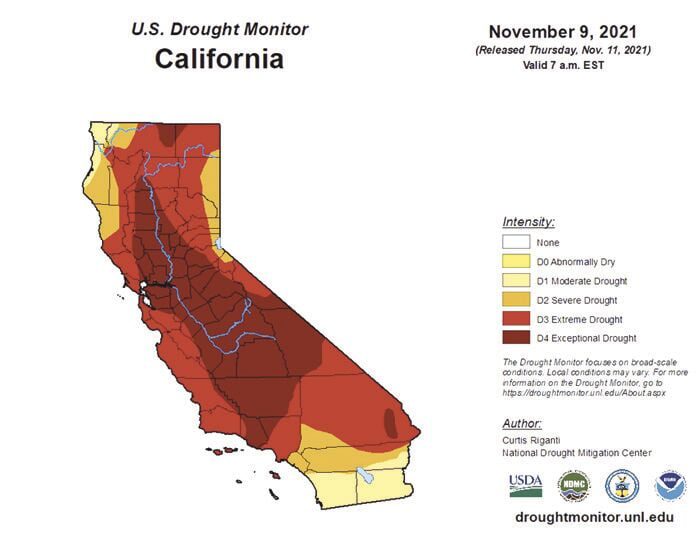“Most of California is in severe drought.”
That was the dire statement from Amy Rocha, communications manager for the West Basin Municipal Water District. Her agency wholesales imported water purchased from Metropolitan Water District of Southern California. The agency provides water to nearly 1 million people in 17 cities and unincorporated areas in Los Angeles County, including Malibu. Rocha emphasized LA County is in “extreme drought,” adding, “Our water supplies are critically low.”
Last month, California Governor Gavin Newsom issued a proclamation extending the drought emergency statewide. He urged Californians to increase their water conservation efforts as the Western U.S. faces a potential third consecutive dry year and California’s second driest year on record. The governor is requesting a 15 percent voluntary reduction in water use—that equates to each household using 20 fewer gallons of water each day.
Last Tuesday, Nov. 9, the Metropolitan Water District declared a drought emergency. For now, no local water restrictions or penalties are in effect.
Six years ago, during the previous drought, lawn watering was limited to two times per week in the 90265 zip code, which includes LA County Waterworks District 29 and the Las Virgenes Municipal Water District, which serves parts of Malibu. Penalties for exceeding water limits were costly.
If water usage is not lowered, homeowners and businesses could once again be penalized for over usage—other cities are already wading into regulations. As of Nov. 12, 2021, the City of Burbank initiated part two of its sustainable water use ordinance that limits sprinkler and irrigation use to just 15 minutes on Saturdays only.
Malibu and Topanga are served by District 29. Its water supplies are imported from Northern California through the state water project and through the aqueduct from the Colorado River. Both areas are currently critically low. Low rainfall and less runoff from the Sierra Nevada Mountains contribute to the water shortage, too.
“We need to conserve now,” Rocha said.
“Use water wisely so we can stretch,” she added, to conserve the precious little resource that remains in our reservoirs.
Incentives to save
With shrinking supplies, water agencies are stepping up their efforts to incentivize residents and businesses to conserve at the tap. Customers are encouraged to save water indoors and outdoors.
“We know in Malibu some water usage can be potentially higher if you have a bigger property,” Rocha said.
Rebate programs exist to remove grass and to install efficient devices for irrigation. West Basin is currently offering two dollars on top of the Metropolitan Water District’s one dollar for every square foot of grass removed. According to Rocha, that could be a savings of “$15,000—if you had a big enough project—to get that $3 rebate.” The use of drought resistant plants is encouraged.
The Malibu Smart and Topanga Smart programs are a partnership of West Basin, the City of Malibu and District 29. Residents who remove turf can piggyback more rebates through the programs. On malibusmart.org, you will find other incentives such as an $85 rebate for installing water efficient clothes washing machines and free smart sprinkler timers including free installations. The sprinkler timers use web-based application technology that monitors local weather conditions and adjusts the flow of water accordingly to avoid over watering. The website also offers a $40 toilet rebate for installing a low-flow unit, and you’ll find rebates for rain barrels and cisterns.
For business owners, Rocha suggested a program called “Cash for Kitchens” operated through West Basin. The program offers rebates on new commercial-grade dishwashers and offers free water efficiency devices and educational materials. Commercial kitchens and restaurants only need to take an online survey to qualify for a free contactless water efficiency package.
In the official declaration from West Basin, Harold C. Williams, the president of the West Basin board, reminded, “There is a sustained need to use water wisely considering our naturally arid and changing climate conditions.
“Water-saving actions today will help to alleviate demand and stress on our current water supply reserves,” he added.
For more information, go to bewaterwise.com.

